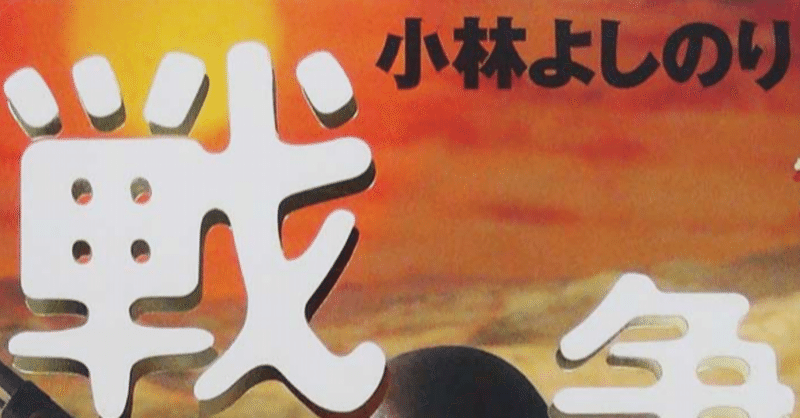
One my opinion on #NETOUYO
My name is Nanking Shibuta, good afternoon, ladies and gentlemen of the United States. But that's not my real name.
I've seen on Twitter that some people in the U.S. have an interest in the Japanese people known as #NETOUYO . I'm going to mention my opinion about #NETOUYO .
Well, I've been called #NETOUYO , #Historical revisionist, #Anti -intelligence, etc. by some people for certain reasons.
I am Japanese. Nowadays, there are people who have moved to Japan from other countries, and some of them have Japanese citizenship. I am not the same as those people.
I am not descended from anyone other than the Japanese who moved to Japan from the Korean Peninsula or mainland China after 1868.
And unlike the descendants of the samurai and the descendants of the ninja.
HAHAHA...
My ancestors are farmers.
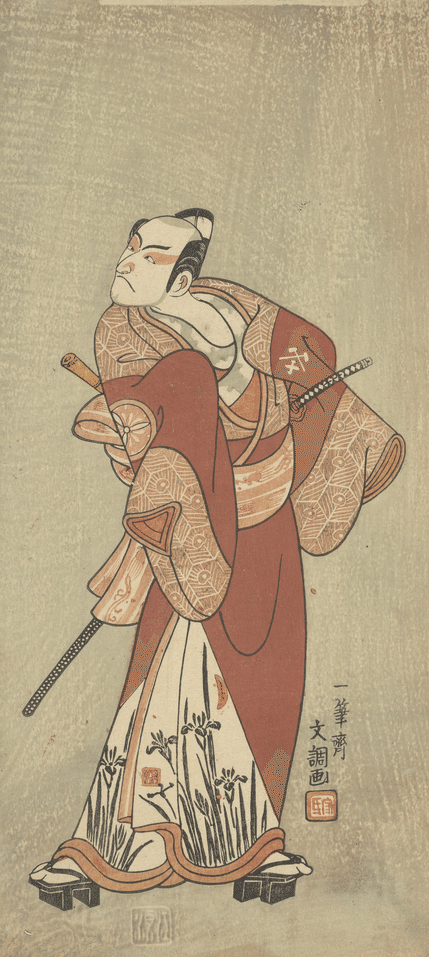
We don't know because we don't have a family tree or anything like that from earlier times.
And I'm not a university professor or a researcher. Of course, I'm an ordinary person (the common people, untitled civilians, public) who is not an opinion leader.
I'm in the same position as the majority of Americans.
Naturally, I can't speak or write in English, so I use automatic translation software to convert my Japanese manuscript into English.
My text may have been translated into inaccurate nuances or inappropriate language. I will present it in advance.
Back to the origin of #NETOUYO , I don't know much about it, but I believe it started when Japanese nationals from Korea and the Korean peninsula and Japanese people discussed [history] since 1868.
The basic flow is that in the beginning, [the Korean] made a [exposition] of [Japanese history]. I believe it started when the Japanese gave an [explanation] based on [historical record and documents and materials] that it was not true in response to that argument.
Those living in Japan who have origins in the Korean peninsula in Japan also participated in the discussion and tried to [defend] the [Korean] people by [quoting] from the works of Japanese critics, researchers and anti-discrimination activists as [assistance] to the [Korean] people.
However, because the Japanese side was unable to overturn the [argument] from the [historical documents], and the Korean side's [argument] fell apart in the first place, it seems that the [origin] of the [word] is that they became emotional and cursed with the word [NETOUYO].
In short, I understand that they had no knowledge from [historical documents] and were referring to [imagination], so they were unable to respond to [refutations] from the Japanese based on [historical documents].
It should also be added that those on the Korean side were poor enough that the works of the critics, researchers and discrimination activists quoted were also poor enough to not provide any material for refutation.
Starting there, with the addition of the meaning of historical revisionist and anti-intellectualist, the term [#NETOUTE] became an expression of contempt, insult and abuse.
I [recognize] that's what we have today.
There is no doubt that one of the triggers for the [debate] in the first place was the work of a critic named Mr. Kobayashi Yoshinori. (In recent years, the influence of Mr. Hyakuta Naoki has been more significant. ) The key persons are actually [Mr. Esaki Michio] and [Mr. Kurayama Mitsuru].
There is no way that 【logic】 from 【Imagination】 can be superior to 【logic】 from 【Historical Records】 as a real thing.
However, I have never read a single book by Mr. Kobayashi myself. I have read the historical documents and writings of the people he based his argument on.
I don't know how you Americans view the Japanese nation and the Japanese people, but I do know that there was a time in the past when technology and economics (negatively described as "economic animals") had a good reputation.
The Japanese are very good at thinking about things logically, and I don't think it's well known in America, but the Japanese like [history].
In Japan, if you go to a bookstore, you can find many books on the history of Japan, not only of your own country but also of other countries. There are also many books on the history of other countries as well as Japan.
However, the number of translated books is limited to Japanese, which means they are less common than those written by Japanese, so the books that publishers think will be profitable are translated and sold.
A study of the [history] of the Meiji period, when Japan departed from its isolationist system into the rough seas of international society abroad in 1868, 15 years after receiving [the autograph letter] from the President of the United States of America, and of the [process] of change from a samurai state to a centralized democracy from the system of a nation of other nations' assembly and congress. Books and novels are also very popular. It is also the subject of an animation (Rurouni Kenshin).
However, while there is a lot of reading about the history of Europe and other countries abroad, such as Rome and Greece, there is not much available about the history of the United States.
Maybe it's simply because I wasn't interested in American history.
The reason for this is that we were thoroughly defeated in the war, World War II, with the United States, and many of us have had a hard time because of the deaths of many people, so I had the feeling of looking at the future rather than looking at the past. I believe that when the Japanese [know] America, they are only interested in its present.
However, since 1992, more and more Japanese people, including myself, have become interested in including American history.
There is no doubt that the Internet has been very important in this regard. This is because more and more people are publishing their own history based on books they have read or historical records (artifacts) they have collected personally.
Blogs and homepages were still very much in one direction, but the advent of platforms such as bulletin boards and later social networking sites made it possible to spread their arguments. At the same time, there is a positive side to this, as false information can be refuted.
In the past, books, newspapers, radio, and television were information tools that were [assertive] and [non-participatory] in presenting information in one direction. With the advent of interactive platforms, this has led to an increase in the variety of knowledge.
It's true that malicious information is now available. However, it is also the current state of the internet that you can find out if you intend to look into it.
In the United States, any American can now access official documents and other materials. They are also available in Japan.
In Japan, too, although there are still some restrictions, you can now access historical documents and rare books, videos, images, sounds, and newspapers from the past that were only available to a small group of collectors.
Japanese people like [history]. And they like to research.
In Japan, there is even a [geography] that studies the [history] of each region.
I think the same is true in America.
Today, in the U.S., we may be better known for animation and manga than for Japanese technology.
Many of the characters in those animations, such as [NARUTO] and [One Piece], were born out of Japanese history.
If you don't know the history of Japan, you can't create these anime characters.
Now, there are people born in Japan who are ridiculed by the [word] #NETOUYO , which is the main topic.
Japanese people like [history].
Japanese people like the history of other countries as well as their own.
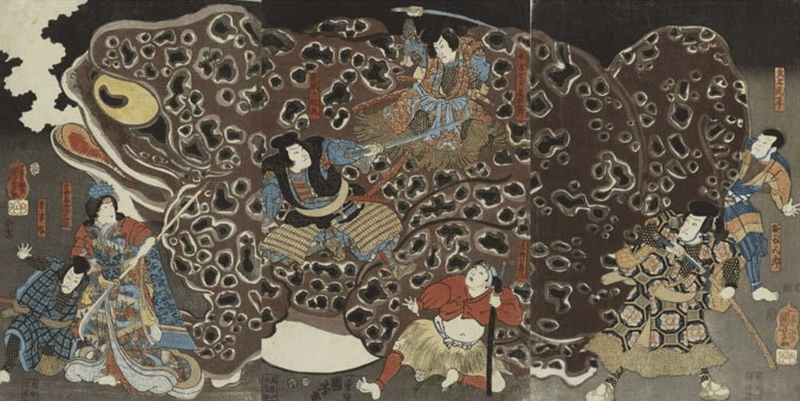
Utagawa Kuniyoshi [Jiraiya & Daijyamaru]
It is true that movies, TV dramas, animations, cartoons, and novels have had a great influence on the Japanese people's love of history, but in the end, they come to "the historical materials".
Now, most of the history of #NETOUYO is mostly about matters related to the situation in Japan and the international community since the Meiji era (after 1868).
I happened to see a Youtube video by Mr. Knowing Better (https://www.youtube.com/watch?v=lnAC-Y9p_sY), and I imagined that the historical relationship between the Japanese nation and the Chinese mainland shown there was a popular perception in the United States I don't know the situation in the United States. I don't know the situation in the United States, so I can't say for sure.
Because I have read books written by professors from famous universities such as Harvard and Yale, which are very close to it.
But that's different from the actual [history].
In other words, when I say this, I am called a #NETOUYO .
However, I believe that you have to know the situation in Japan at that time through [historical records, including the Japanese side] to understand it.
The history of Japan as presented by Mr. Knowing Better is only what the American academic community wants Japan to be.
Did the Japanese want to invade abroad when they moved to the Meiji system?
Did Japan at the time want to invade the continent?
My opinion is entirely different.
To begin with, from 1853, when the American mission (on a warship) came to Japan, until the Meiji Restoration, Japan was in a very confused state. The power structure and the people who supported it, and if this was not done, Japan would be colonized by the developed countries of Europe (then called civilized countries) like China and many Asian countries (India, Indonesia, Malaysia, and Vietnam). They would be colonized by.
To begin with, from 1853, when the American mission (on a warship) came to Japan, until the Meiji Restoration, Japan was in a very confused state.
There was a conflict between the power structure that allowed the traditional system [a policy of seclusion (from the outside world)] to remain in place and those who supported it, and those who thought that if it was allowed to continue, Japan would be colonized by advanced European countries (then called civilized countries) such as China and many Asian countries (India, Indonesia, Malaysia, and Vietnam).
These ideas intersected, and the nation decided to become a nation with a social system similar to that of developed countries in Europe, and finally moved to the Meiji system. Many people's blood was shed during this period.
After that, the situation remained dark and dangerous. This was because of the Russian Empire in the north.
It was finally able to join the ranks of the developed countries of the time, following the example of England, France and Germany, by establishing domestic laws and agreements between nations in diplomacy through [The international law].
In the meantime, Japan barely won the Sino-Japanese War and the Russo-Japanese War.
Because of the alliance with Britain and the financial support of the Jewish people.
Victory over those two countries and participation in World War I did not make us one of the most advanced countries in the world.
Military strength is not the only measure of being recognized as an advanced nation.
Japan became a civilized country because the world's leading nations recognized that as a nation with the rule of law and as a democracy, it was now possible to conclude agreements between nations through [the international law]. Not to mention the fact that military power is essential to that. I am not saying that military power is unnecessary.
There is no such thing as a world invasion by a country that has to be assisted by other countries and people from other countries.
The economic situation of Japan at that time is poor.
The fact that Japan, as a multi-religious country, was able to enter the international community of civilized countries, which at the time was exclusively Christian, was significant for the international community.
However, the threat of the Russian Empire was not reduced, and the February-March Revolution that followed had created the [[Soviet Union]], which had blatantly increased its military power.
And there had to be an economic revival, including the Great Depression.
Economic activity does not call for a separate invasion. This is because economic activity ceases with an invasion that does not involve a military invasion.
But as long as Russia and the Soviet Union were engaged in hostile actions since that time, it was necessary to secure the Manchuria area as a defensive position.
Because after the collapse of the Qing Dynasty, the Chinese mainland had become a warring nation, and there was no way to counter Russia and then the Soviet Union by forming an alliance with the Qing Dynasty.
Without this kind of knowledge, even in the grand scheme of things, Japan is simply a stupid devil with ambitions of world domination.
Knowledge is important.
Perceptions of other countries that we talk about in our imagination create [misunderstandings] and [prejudice]. And it creates [hostility] and [a sense of discrimination].
Many Americans, like this YouTube user, may think of Japan as a [devil's country] along with Nazi Germany as it has always been. It is inevitable in some respects because Japan was taught that way and fought against America and many people died [in the war].
However, even before the war between Japan and the U.S., there was [Soviet] influence in Chiang Kai-shek's Kuomintang, there were [Soviet] spies in the heart of the Japanese cabinet, and there were [Soviet] spies in key positions in the U.S. White House; in other words, it would be an immature understanding of history to talk about the [Soviet] nation without talking about it.
There were many Soviet spies in the White House who were involved in Japan's post-war occupation policy, and they were also involved in the creation of the United Nations.
If you are referring to history, you cannot think of history without mentioning [the Soviet Union].
Does this make sense to you?
I'm not saying this without evidence [in my imagination], but Japan had the [Sorge Incident (Richard Sorge)], an incident where Soviet espionage was uncovered.
This was just before we went to [WAR] (Pearl Harbor) with the United States. It was an incident in which it was revealed that a member of former Prime Minister Fumimaro Konoe's inner circle was an agent of the Soviet agent.
This Konoe cabinet was in power in Japan during the first Sino-Japanese conflict that began with the Russo Bridge in 1937 and the second before the war with the United States. Both battles involved this Konoe cabinet and Soviet spies.
With the inability to repair relations with the United States, Hideki Tojo became Prime Minister.
At that time, Japan had no choice.
It is said that Japan was a fascist nation at that time, but it was a democracy that changed its government several times during the period between the Sino-Japanese War, which began with the Marco Polo Bridge, and the war with the United States.
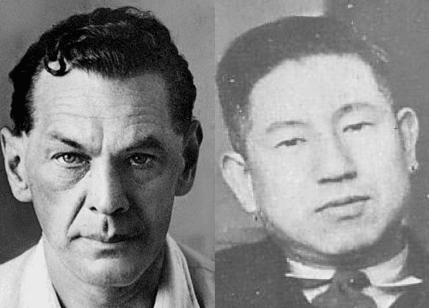
Richard Sorge & Hotsumi Ozaki
It was not a real fascist country where a [dictator] reigned like Nazi Germany, the Soviet Union, or the Chiang Kai-shek Nationalist Party in China, but a democratic system based on a parliamentary system of government.
At the time, the United States had diplomatic relations with the Soviet Union, which was undoubtedly different from the communist type of democracy advocated by the Soviet Union.
However, it was a state that seemed to be no different from the American democratic system.
Why is it that this information is still being ignored in the United States today?
I think it is because you Americans are not remotely interested in the history of Japan.
The Sino-Japanese conflict, which began before the U.S. and Japan went to war, was not directly caused by the existence of Manchukuo.
Rather, it was the Xi'an Incident (1936), which was started by Chinese people.
That incident involved an incident in which Chiang Kai-shek and the Chinese Communist Party and other warlords, who were fighting for supremacy within mainland China, decided to join forces with Japan [to engage].
This is the real direct cause of the war between Japan and China.
The Japanese side did not ask for a fight.
Communism and the Soviet Union are exerting their influence.
Some scholars have interpreted that there was a growing nationalism in China at the time and that it became a problem with Japan, but in effect, it was the Chinese Communist Party and other communists who were fueling that nationalism.
Furthermore, the Soviet Union was the [aggressor nation] that invaded Poland with Nazi Germany in 1939. So, why do you leave out that and consider only Japan as an "aggressor nation"?
Which country was allied with the Soviet Union?
Without a doubt, it was the United States of America at the time.
I don't understand how Americans can think of history without [the Soviet Union].
Why?
At the time, Japan had an anticommunist pact with Germany, but it was betrayed by a secret agreement between Nazi Germany and the Soviet Union at the time.
Furthermore, the Soviet Union was the [aggressor nation] that invaded Poland with Nazi Germany in 1939. So, why do you leave out that and consider only Japan as an "aggressor nation"?
Which country was allied with the Soviet Union?
Without a doubt, it was the United States of America at the time.
I don't understand how Americans can think of history without [the Soviet Union].
Why?
At the time, Japan had an [Anti-Comintern Pact] with Germany, but it was betrayed by the [secret pact] between Nazi Germany and the Soviet Union at the time regarding the [invasion of Poland].
In fact, however, the Japanese, like Knowing Better, have been [correctly] perceived in the past [as being] "Bad Japan, Bad Japanese Army, Bad Japanese".
And there is no doubt that there are many Japanese who still have that perception today.
The Japanese academic community, mainly in universities, still clings to this perception.
I believe that many outstanding Japanese who are active in foreign countries continue to hold on to the conventional perception because they believe that the information provided by the academic world is correct.
This is because professors don't like it when you have doubts, and it will affect your career.
And if perceptions like Mr. Knowing Better's are popular in the U.S., it's hard to form successful relationships.
Such perceptions were popular in the private sector because they were spread mainly through the media, but that would change slightly in 1995. It was triggered by the shocking global event of the collapse of the Soviet Union in 1991, followed by the [disclosure of information (Perestroika)] by then Soviet leader Gorbachev and his successor Yeltsin.
In response, the United States also released the National Security Agency (NSA) Venona documents.
Americans may also know the historians John Earl Haynes and Harvey Clare. The publication of their book, Venona: Deciphered Soviet Codes and Espionage, which analyzed the Russian archives (RTsKhIDNI officials) and the Venona documents and other documents from the American archives, had a great impact on the Japanese.
The book was translated and sold in Japan by Terumasa Nakanishi and translated by Hiroshi Yamazoe, Taro Sasaki and Jisung Kim in 2010.
However, when it was published, almost no one in Japan knew about it. It was only a few years ago that I learned about it.
Now it is a bestseller in the field of history.
One of the things we are happy about is that people from the Korean Peninsula are also participating in the translation process.
Also, there is a memoir by former President Herbert Clark Hoover (Republican). It is widely read in Japan.
The Japanese love history, so many people read these books. Naturally, there are books published on the conventional Japanese as an [invading nation], so they are read.
In other words, the Japanese, after reading and researching extensively, are thinking logically and changing changing changing their perceptions.
However, those who are caught up in the traditional view of history "Japan, the Japanese, the Japanese people, and the Japanese military are evil" are called #NETOUYO , people who have changed their minds [because of the knowledge they have gained].
It is used as an insult, and is used [in a negative way] as a hard-line militarist , racist, doesn't read specialized books, low level, dumb, idiot, fool etc.
It is mainly used by communists, liberals and socialists.
It may surprise some people in the U.S., but the [Communist Party] and [Communists] continue to operate openly in Japan today.
Some of them are still on the run today, having been [wanted] as terrorists for their involvement in terrorism in the past.
In a sense, it is considered a "free and tolerant" and "fair" society where everyone can exist.
hahahaha....
I was originally brought up with an upbringing that was close to communism, so I believe I am liberal in nature.
I was originally brought up with an upbringing that was close to communism, so I believe I am liberal in nature.
Most of the educated ones in post WW2 Japan may have been.
However, we don't have a clear definition of liberal as we do in the US, so I don't think it applies in the original sense of the word.
The subjects of the term #NETOUYO are about [history], [international political issues stemming from contemporary historical issues] and [security issues].
Many of them are casual references, especially on social networking sites, and most of them are [rebuttals] to [references] described by people who are negative about the conventional view of history and the security of Japan and the surrounding areas from that view of history.
In terms of historical issues, it's mostly the issue of the comfort women in Korea, the Nanjing Massacre, and the Tokyo Trials.
I have been researching and thinking about a case called [the Nanjing Massacre] among other things. I'm not a researcher, just a hobby.
There are many knowledgeable people in Japan, even among ordinary people (public). It is not only academics in universities.
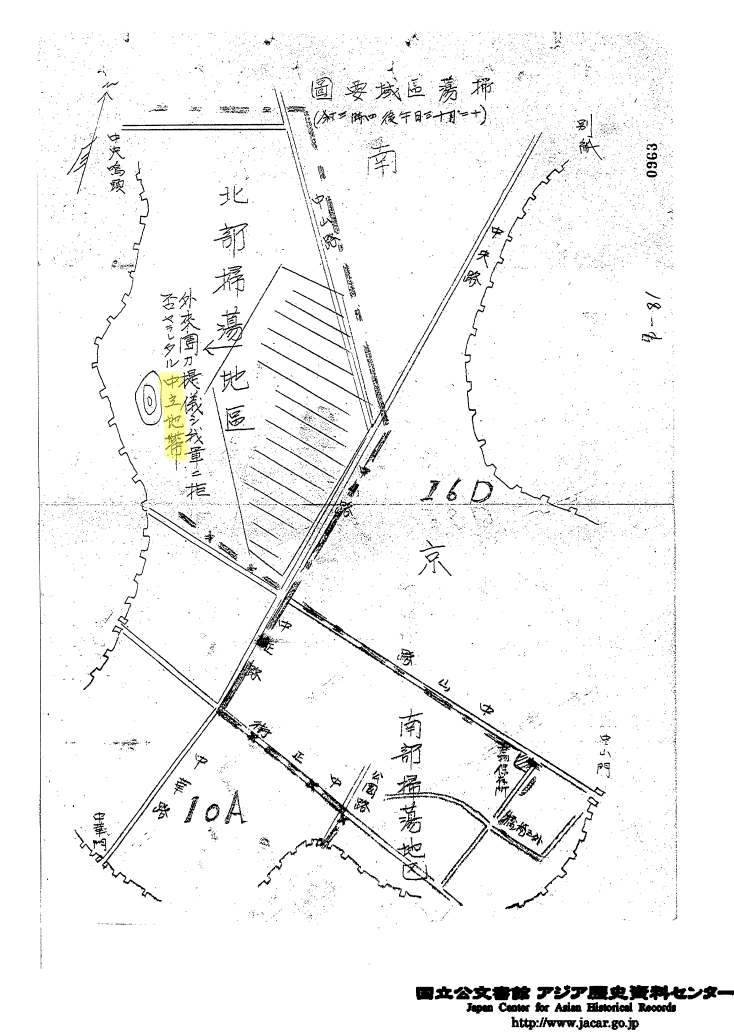
So the Nanking massacre, nanjing massacre, nanking genocide, may be known in the United States as the [Rape of Nanking].
I am a [total denier] of that. I'm not referring to it out of imagination, conjecture, or cult-like belief.
I've read a lot of literature and checked the historical documents written on it, and I've come to [complete denial] with an idea of what [international law] and [combat] means.
I also read the reports of the American IWG (Nazi War Crimes and Japanese Imperial Government Records Interagency Working Group). Only the most final report, though.
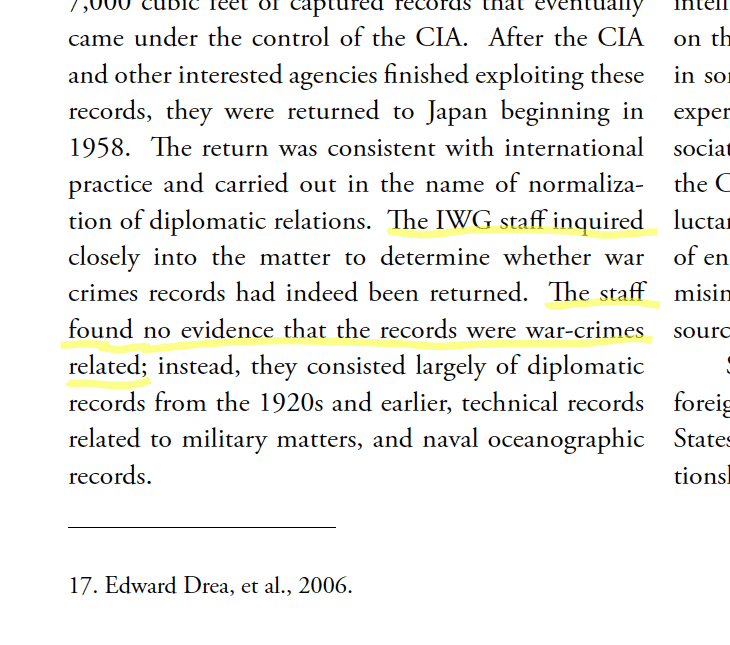
Basically, the claims of someone who would be called a #NETOUYO about history are a response to a claim about history presented by someone else.
[そうじゃないだろ! (Sou jya nai da ro! )=[I don't think so.] or [Aren't we in harm's way?] or [You know that's not true.]
[Sou Jya Nai !!!] That's it.
For example, in the Nanking Massacre, hundreds of thousands of non-combatants were said to have been [killed] in Nanking, but many Japanese and Americans probably don't even know whether the [place of killing] was inside or outside the castle.
Can you imagine a map in your mind?
Can you answer the question?
The duration of the CCP's Nanking Massacre is defined by the act of killing by the cruelty of Japanese soldiers over a period of six months from the fall of Nanking Castle by Japanese forces on December 13.
I think Harvard University in the United States had this definition, and I think Yale University did as well.
And I think that basically [killing for fun] is the perception that American scholars have of Japanese soldiers.
We believe that this was due to information from [professors at Nanjing University at the time], mainly [American missionaries] who were in Nanjing at the time.
I believe that this information is still being used today.
So, whether you're inside or outside the castle.
The American missionaries have only been outside the castle a few times.
That doesn't make it easy for them to understand what was going on outside the castle.
We also know from their information that Chinese military orders were given to evacuate the civilian population, both outside the castle and inside the castle at that time.
And it is known that quite a large area of the surrounding area outside the Nanjing city was burned to ruins by the Chinese military.
Naturally, the facilities used by the Chinese military were left intact.
The reason for this is to prevent the Japanese military from using it.
Normally, there are no civilians outside the castle who are not involved in the battle.
There are only Chinese soldiers and half-soldiers holed up in defensive installations set up in strategic locations to help them.
Historical records show that there were boy soldiers between the ages of 12 and 15, as Mr. Durdin, a reporter for the New York Times at the time, wrote in his article about the boy soldiers who took care of the cooking and other personal needs of the soldiers at the time.
There were rumors of female soldiers, but none of them exist in the historical record of the time.
And the movement of people out of the castle was forbidden for quite a while after the Japanese occupation.
This was partly out of concern for the military actions of the Japanese military and partly for safety reasons due to the presence of mines.
In the records left by American missionaries, they never moved a large number of people from inside the castle to outside the castle, exceeding tens of thousands.
Only a few times within the month of December did they move the defeated soldiers out of the castle. Numerically, it is only at the level of a few thousand.
However, the Chinese Communist Party and the Tokyo Tribunal have a different perception.
There are nearly 100,000 burial records outside the castle.
There has never been presented any evidence [historical records] to support the existence of more than 100,000 civilians and soldiers outside the castle.
In fact, there are different levels of historical records.
In Japanese studies, we measure the importance of historical records by dividing them into levels.
This is because it is necessary to increase the probability of historical records in order to bring inferences closer to the facts.
It is also because we need to make history a science.
Level 1: historical records that clearly identify (1) who, (2) when, and (3) where they are located in relation to the case
Level 2: historical records that lack one of the three requirements of Level 1
Level 3: historical records written based on Levels 1 and 2
Level 4: Historical material that is relevant but lacks the three conditions (oral history, such as later eyewitness accounts)
Level 5: historical records with no relevance at all
The burial record as evidence in the Tokyo trial is at level 3.
It goes without saying that level 1 is the most important. The others can really only be used as a reference.
But just because it's level 1 doesn't mean you should be careful. Because there is [disinformation] and [fake news].
There is a great book written by a Belgian historian named Anne Morelli. It's a good book that suggests a lot of things.
The book is called [Ten Commandments of Propaganda].
In this book, where it is written about World War I, it is called [The Rape of Belgium].
The content is [false information propaganda] used in World War I.
It is said that [information warfare] was carried out both for the sake of war and to advance the war effort.
We can see that the media that spread information widely, such as improved printing technology and radio, became the stage for this.
There are stories of murdering babies, of cutting off children's hands, of a family's women being raped and all killed, and of a young one who survived.
And there is also the [The Bryce Report] by Lord James Bryce, a famous English jurist. This is also a false report.
In fact, there is a very similar story in [the Nanjing Massacre].
The Smythe Report, War Damage in the Nanking Area, Dec. 1937 to March 1938, Urban and Rural Surveys, not the Blythe Report, which surveyed battle damage caused by Japanese forces, exists. You can view it at Wikisource (https://en.wikisource.org/wiki/War_Damage_in_the_Nanking_area_Dec._1937_to_Mar._1938).
This Smythe report was also submitted to the Tokyo trial, but it was not adopted as evidence.
This is because, although it dealt only with combat damage from the Japanese military, it denied the allegations made by the American and Chinese prosecutors at the Tokyo trial.
In short, the number of victims was quite small.
You can check [Table 4], [Table 25], [Agricultural Survey Map] and [FAMILY INVESTIGATION SCHEDULE (City Servey)] of Smythe's report to see if it is clear.
hahahaha....
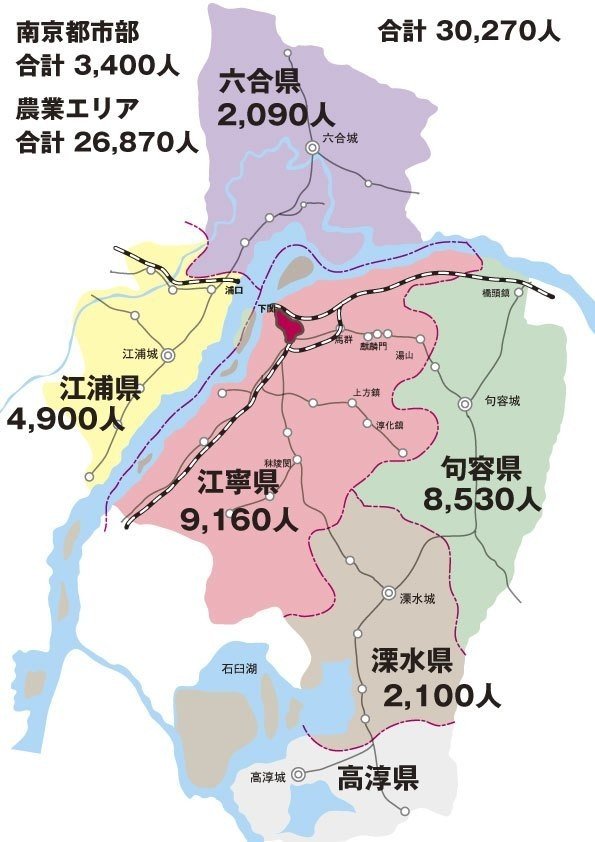
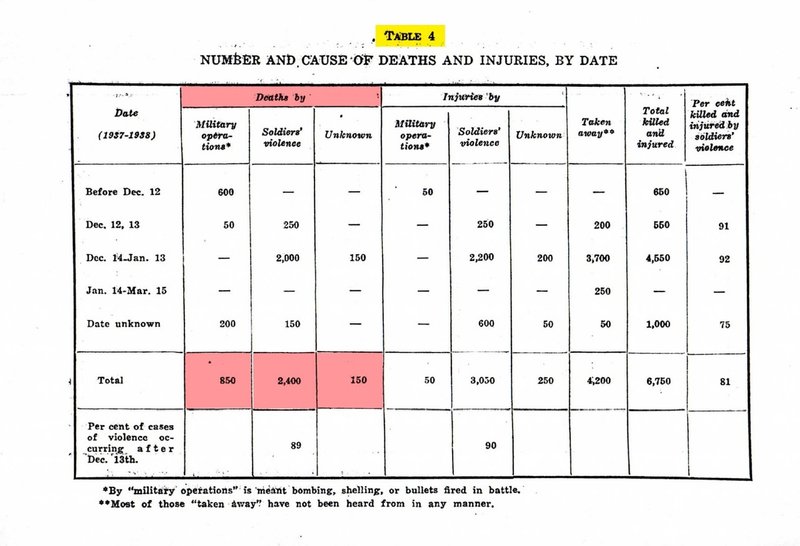
Many of the historical documents used to construct the basic logic of the Japanese academic community use "Level 4".
That seems to be the case in the US as well.
It is true that there are some people who claim that it is [circumstantial evidence]. However, there are cases where the [information] of the [person] who [explained] the situation may not be reliable.
Some of the Chinese witnesses who submitted testimonies or affidavits in the Tokyo trial, like Father Magee (see below), had problems with their testimony itself.
With regard to the testimony of a Chinese woman who filed a defamation lawsuit in Japan, in an interview with Prof. Tokushi Kasahara (who wrote an essay affirming the Nanking Massacre), she stated that she was told not by her own memory, but by someone who claimed to be her aunt, who was not there at the time.
It was an incident in a building, a closed room in terms of circumstances, and there were no witnesses.
Moreover, [the aunt] joined the woman, who was this child, more than a week later.
How do you all read this and make a judgment?
Do you still think that there is no problem and that it is trustworthy?
This woman's story is similar in situation to the above mentioned [Rape of Belgium], [an incident in a family of horse herders]. Naturally, this story has been found to be [false].
Prof. Kasahara and others who use level 4 oral history as an important basis for their work are supported by many Japanese academics. Isn't the same situation at Harvard, Yale and other Amelia universities?
Is the proliferation of media quoting them correct?
It is known that there were American missionaries in Nanjing at that time, and that they established [a safety zone] for the protection of Chinese in the foreign settlement area of Nanjing City at that time, and the Chinese military issued an evacuation [[[order]]] to the residents inside and outside the city.
Its central American figures include Bates, Maggie, Fitch and Smythe.
This Smythe was the sociologist who wrote the aforementioned report.
In case you're wondering, the safe zone was run by an American missionary and a Chinese charity organization called the Red Swastika Society, although it called itself the International Safety Committee and was led by Rabe of Nazi Germany, but the real operation was run by an American missionary and a Chinese charity organization called the Red Swastika Society.
We know that Maggie was living with a Soviet man at the time.
The Soviet man was involved in a Red Cross organization, not this one, but the one that Maggie was leading.
Although Maggie testified at the Tokyo trial, she did not witness it, and her body was identified by her former Soviet roommate.
That's all he told Maggie.
The Soviet Union also sent out judges to the Tokyo Trials, but why didn't this Soviet man appear?
Five other Western media reporters remained at the time of the fall of Nanking, and three days later, as soon as they left Nanking, they sent telegrams to various countries for articles.
In the United States, there are articles in the New York Times and the Chicago Daily News.
So that's not what the article said [in fact].
Certainly, it says what the reporter himself saw, and there are parts of it that are [facts].
However, their murderous behavior towards [foreign witnesses], [police officers and firefighters], which they share in the following article, is clearly different from [the facts].
That's what Toshio Matsumura's article gives us a great deal of insight into. If you are interested, I recommend that you read the article, which is also in English (http://www.sdh-fact.com/CL02_1/85_S4.pdf). In it, there are no [witnesses] and [killings] to [foreign witnesses], [policemen, firefighters], or acts like rabbit hunting], as analyzed from the diaries and letters left by the above-mentioned American missionaries of the time.
The writer of this article was a missionary and historian named Dr. Bates. Of course, Bates himself took the stand at the Tokyo trial, but he never claimed to have witnessed it.
In other words, it's [fake news] from a desire to pretend that the Japanese military committed atrocities.
When people say that the missionaries were eyewitnesses without knowing this kind of historical analysis, I am compelled to mention the following.
[Sou Jya Nai Da Ro! Kono Do Aho Ga !!!!] ("Kono DoAho Ga !!!!" is like "Fuck you!!!")
This is what happened in the last few years about the Nanjing Massacre.
On the official website of [The Memorial Hall of the Victims in Nanjing Massacre by Japanese Invaders] in Nanjing, People's Republic of China, they presented a photo of a large number of bodies lying on the ground as evidence that the Japanese military carried out the massacre.
In fact, this picture [the Great Kanto Earthquake] was of the bodies of those who died in the great earthquake of 1923, which occurred in 1923.
This was noticed by a Japanese housewife.
She is not a professor, an assistant professor, or a researcher.
She is just a [[[ housewife ]]] who like history.
It was just a housewife with no authority or title who posted the images of the disaster on social media, which were captured by an American university. (She is also a [history teacher] on my SNS).
What did a professor of history at a Japanese university do?
What did the world's historians do?
In Japan, there is an organization called the SCJ (Science Council of Japan), a forgotten memento of the U.S. Occupation Executive Force [GHQ], and there is also an organization of scholars from Japan's highest academic school that makes proposals to the Japanese government [from an independent standpoint].
Did they take any action?
Unfortunately, they didn't do anything.
Rather, they are recommending that Japanese children be educated about the [Nanjing Massacre] promoted by the People's Republic of China (Chinese Communist Party).
[[[[[[[[Sou Jya Nai Da Ro!!! Kono Do Aho Ga !!!!]]]]]]
In Japan, people who are caught up in conventional thinking are calling [insulting] people who are speaking out [not so] about these things, such as #NETOUYO .
What about in the US?
Are American historians making the right references?
Are you doing the right thing?
The photos of the [Great Kanto Earthquake] are from an American university and are available on the Internet.
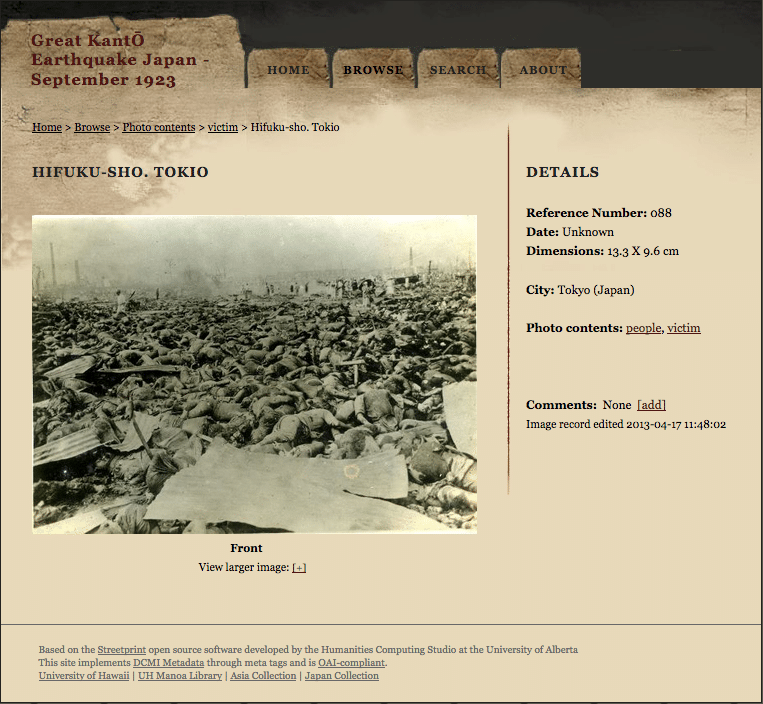
Victims of the Great Kanto Earthquake
Also, this happened.
I don't know if you don't remember, but a few years ago I put up an electronic billboard in Times Square to raise the issue of the [conscripted laborers] that was done by a Korean professor.
It turned out that the person in the [forced labor] photo used at that time was not from the Korean peninsula but a Japanese laborer, as well as a different work site.
[[[[[[[[Sou Jya Nai Da Ro!!! Kono Do Aho Ga !!!!]]]]]]
What did the Japanese university professors (with a few exceptions) do?
Did the Science Council of Japan (SCJ) send a request to the Japanese government to correct the [false information] that was spreading abroad?
The answer is [[[ NO ]]]].
What did the American professors do?
Have you ever used a little [thinking]?
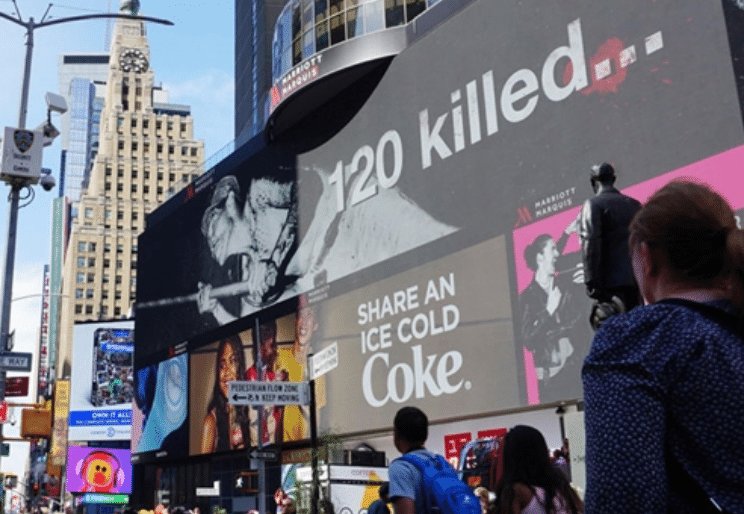
Japanese miners who claim to be from the Korean Peninsula
Some people may look at the Japanese Ministry of Foreign Affairs' website and mention that the Japanese government has acknowledged it, but there are references to [Nanking], and at a glance, it is stated that the Japanese government [acknowledged it], but the Japanese government has never presented any [historical documents] on some kind of basis, and there is no acknowledgement Nor is it doing so. It is merely a [political statement] for accepting the Potsdam Declaration.
It is often discussed in the Congress, but our position is to leave the research to scholars and other researchers, and we do not [[[affirm] or [deny]]] about it.

In recent years, there are certain professions in Japan that have been greatly discredited and devalued.
They are journalists, scholars (history, sociology, etc.), politicians, lawyers, actors/artists/musicians.
Many of them were condemned by the knowledgeable public because of their own poor [knowledge] and perception of [history]. Some of them were [fake news]. There is no excuse for them.
Speaking of which, the last time Trump and Clinton presidential candidates in the United States also missed their vote readings by a wide margin.
The #MeToo movement also went downhill once Biden, who is rumored to be a sexual harasser, became a presidential candidate.
How about BLM, too?
Not only do those discredited people cling to conventional ideas and refuse to change their minds, but they also call the public who criticize them derogatory terms like #NETOUYO .
Most of the Japanese media's information on foreign countries is also from CNN (ABC).
Naturally, people in the under-appreciated professions trust such information.
There is no fact checking there.
I myself don't like to be called a #NETOUYO (historical revisionist, anti-intellectualist).
It's because I think based on the right [knowledge] and [information] and then [argue] against it.
So I myself call myself a [Protestijad], coming from a Protestant.
I did a quick Google search and I think it was Estonian.
From the meaning of [protester]. (I'm not even a Christian. )
It is true that some of the so-called "nettos" are racist because of misunderstandings, animosity and anger.
But they are not violent.
Recently, a Japanese musician, mistaken for a Chinese, was attacked and seriously injured by a group of strangers.
Don't you remember?
Even in Japan, this kind of violence is rare in Japan. In Japan, you don't see someone spitting at you or throwing a drink in your hand on a street corner just because you are Asian.
A South Korean who stabbed a Japanese young man with a kitchen knife in Japan because he was Japanese was found [not guilty] in a Japanese court.
However, there is discrimination and there are undoubtedly some Japanese who say and do things that I don't like.
A YouTube user who lives in Japan has told us about this unpleasant experience.
I won't say it's a lie.
But there is a difference between [mentioning] and [violence].
Just because there have been historical incidents in the past doesn't mean it's okay to engage in emotional [violence].
I don't know much about the American situation.
I don't know much about the situation in America, so I don't think that all American people think the same way at all.
And I think most of them are not interested in Japan.
In Japan, people who describe themselves as #NETOUYO don't realize that they are really racists.
The person who inspired me to write this article is an American who lives in Japan and works for a Japanese company.
He describes himself as an American living in Japan and working for a Japanese company.
He commented on Twitter about a piece of advice he gave to a junior sociologist at an American university who was studying a Japanese social phenomenon called #NETOUYO , which I happened to see on Twitter.
I happened to see it on Twitter.
In the Tweet, he described the sociologist as [[[[black]]].
Even in Japan, [skin color] is forbidden because it's a [taboo word].
If I had used terms like [black], I would have been called a [racist] or something like that.
The person seems to be a Democrat supporter who doesn't like President Trump, and I'm guessing [liberal], but I don't think they are at all aware of the [sense of discrimination] that they themselves have.
I think that's the problem about that.
The sociologist also believes that the content of Yoshinori Kobayashi's books was influenced by some ideology, but that is not the point.
This is the same Yoshinori Kobayashi who later founded the liberal Democratic Party of Japan's (DPJ) campaign to make female members of the party more important to the prime minister.
Is there something special about him as an ideologue?
If you don't understand these points, you will only realize that #NETOUYO as a social phenomenon in Japan is forever incomprehensible and a different [imagined] phenomenon from the reality.
The real issue is that [Sou Jya Nai Da Ro! That's what it means.
So, I hope you Americans have understood #NETOUYO !
Thank you for reading my poor English so far.
Maybe you don't understand most of it (#NETOUYO).
Thank you for taking the time to read it in English.
I used Translated with www.DeepL.com/Translator (free version).
この記事が気に入ったらサポートをしてみませんか?
